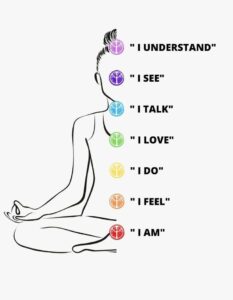Point 1: a list of twenty of these habits can be detrimental in and around the workplace
• The need to win at all costs even when it doesn’t matter and when winning isn’t even the main goal.
• Adding too much value to conversations, always feeling like you have to say your part or add to what’s already been said.
• Passing undue judgement, rating others based on our own standards.
• Making harmful and destructive comments in the form of sarcasm and needless witty remarks.
• Suggesting that everyone else is wrong and you are right; starting each statement with words like No, But, or However.
• Reminding everyone just how smart you are, an intentional need to show everyone you are smarter than they think.
• Speaking of expressing your mind when you are angry or upset.
• Incessant negativity, seeing only the negative sides in every project even when your opinion wasn’t asked for.
• Keeping helpful information to yourself in order to hold an unfair advantage over others.
• Refusing to give credit or praise to people when due.
• Claiming credit for work you didn’t do, accepting praise you don’t deserve.
• Making excuses for bad behavior or shortcomings.
• Holding on to past successes or events, clinging to the mistakes of others in the past.
• Treating people unfairly because you have a favorite within the group.
• Refusing to take responsibility for the errors you make and feigning a lack of regret.
• Failing to express gratitude when you receive a good turn.
• Punishing the messenger when they offer a critique on an issue.
• Refusing to accept blame for anything and blaming everyone else.
• Exalting your faults so high that it is justified as a personality trait instead of accepting them as flaws and working towards fixing them.”
Point 2: the best option for anyone who has identified their character flaws is to move to correct them
Feedback is a very important, very essential, part of ensuring success is sustainable, the reaction to it is also key to its efficacy. Never shy away from demanding feedback, do not assume that you are perfect or doing everything right Knowing this, it is important that you are able to learn the habit to apologize often once you are able to recognize something wrong you did
Point 3: follow up an apology with changed behavior and make sure to listen intently before speaking
– When you are able to conquer your pride, accept your propensity to making mistakes and recognize that you are to offer apology in the event that you offend someone with your mistakes or wrongdoings. The next step is to make clear and distinct changes to yourself and make sure everyone is fully aware of these changes.
– A perfect start to a change in character is being open to listening to other people when they speak to you. This habit can go a long way in making you a much calmer person who, instead of rushing to reply, is listening and dutifully digesting the content of their words, articulate your thoughts about what they’ve said, and communicate it back to them
– Do not interpret a message in relation to the person delivering it. This bias can blur the understanding and plant different ideas in your head
Point 4: Learn to show gratitude to the people who work with or under you
When you are dealing with your workers, it is better to work with kindness and rewards than trying to instill fear of retribution in them. Let them work hard to receive benefits instead of working hard to avoid punishment. This way they will do better work.
Point 5: always make sure to clarify your responsibilities and those of the people working with you
– If you are put in charge of a group, make sure you give them clear and sound objectives, tell them what exactly you expect from them to avoid sowing the seeds for conflict and seeds for these bad habits
– Did you know? There are no habits that guarantee success. Many different actions can lead you to your success so you should never be afraid to try different things
in conclusion , There’s a famous saying; if it’s not broke, don’t fix it. It’s obvious that if you had a plan that worked, any changes might mean failure or going back to the drawing board. As such, it is the safe move to not change anything; besides, it already works so why change anything? But we learn from this read that we must change up more than just business tactics and change our own behaviors in order to acquire and retain success in any endeavors we embark on. This isn’t a call to turn your plan on its head and disregard everything that once worked. It simply is a system of adding little improvements to it over a period of time. It’s a holistic scrutinisation of the plan to review and evaluate its shortcomings and how it can be improved without necessarily changing much. You also personally must be open to change, feedback and criticism whenever it comes. These are essential for growth in any individual





